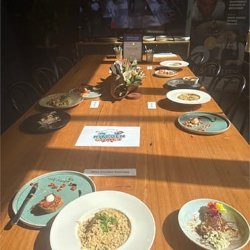When the world started freaking out about the coronavirus, I had the vague hope that the situation wouldn’t turn into a big battle.
It’s scary to be attacked by a strange virus.
But there is something scarier than viruses. I’ve written about it before. It’s a fear that lives deep in our hearts.
We live in a world that is saturated with information. These days, anybody can post anything on social media or other sites. You can’t tell if what’s in front of you is true, and the information just keeps spreading without anyone looking into the source of it. People get wrapped up in fear based on bad news and misinformation, start spreading rumors and hatred everywhere, and then end up discriminating against people and attacking them. That’s what scares me.
The number of COVID cases has been increasing in Portugal. In response to the worsening situation, on July 1 each region decided to put a declaration based on the Citizens’ Protection Law into motion. (The Citizen’s Protection Law defines three levels based on severity, starting with a “state of warning” and escalating to a “state of emergency” and a “state of disaster”). If you look more closely at the regions it’s targeting, it focuses on those with more low-income families, immigrants, and foreign migrant workers.
When COVID cases started appearing in Mafra, where I live, most of them were Brazilians. If you just look at the outcome without thinking about the reasons or causes leading up to that, you’d make the huge mistake of associating the coronavirus with Brazilians.
In fact, Japanese friends of mine in pre-lockdown Lisbon told me that people were giving them dirty looks in restaurants and pulling their children close and covering them up in their coats as if to protect them when they passed by in shopping centers.
Asian people are easy to spot, which of course makes them easy to avoid as well.
Then there was something that happened during lockdown. Woman A goes to the grocery store completely protected—wearing silicone gloves, a mask, and a protective gown. She can’t maneuver her shopping cart very well, so she runs into a cardboard shelf lined with small packets of plant seeds. The impact knocks over the shelf along with all the seed packets, and they go all over the place. Woman B calls to Woman A from a few dozen centimeters away and says that they should call an employee over, but Woman A starts panicking and gathering up all the seed packets. I’m standing right next to both of them, debating what I should do. Normally, I’d jump in right away to help, but I was concerned that I (not even wearing a mask) got closer to Woman A in her full protective gear, she would feel uncomfortable and uneasy. Besides, I’m Asian.
All the while Woman B is tenderly helping her.
My feelings were really a mess at this point regarding what I should do. Needless to say, I didn’t sleep very well that night as a result.
It’s as if people have done an about-face when it comes to showing kindness and consideration for others. I don’t want ignoring people to become the norm. If one of my friends was suffering, of course I’d want to give them a hug.
That’s why we can’t believe everything we read. In the case of the coronavirus, I think it’s important to deeply consider what we ourselves can do to prevent the spread, and then take responsible action.
- 2020.07.27
- Even scarier than the coronavirus…




















































